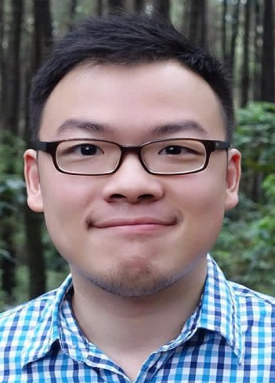PARE Summer School 2019
Sigit Suharta
IPB University,Department of Agriculture

Hi, I am Sigit from IPB University, Indonesia pursuing a Master in Food Science. I joined PARE Summer Program in 2019 at Hokkaido University mostly to expand my knowledge about the human impact on the environment as well as to experience the Japanese education system since one of my university advisors, Prof. Dr. Hanny Wijaya was also a graduate of Hokkaido University in the past. To be honest, I had zero knowledge about environmental science when I entered the program, therefore all the teachings during the PARE program were new to me.
At first, I enrolled in the online PARE classes to prepare me during the summer school. The courses opened up my eyes to how much human activities and agricultural practices impact the environment and how difficult it was to measure as well as to control the damage since there will be political and economical implications in controlling the damage of the environment while keeping high agricultural productions.
After finishing the online courses, I was busy preparing for going to Hokkaido to join the summer school. Arriving in Hokkaido was enjoyable since the environment was very clean and organized. I was amazed by how fresh and clean Hokkaido air and how good Hokkaido’s agricultural products. Hokkaido milk was one of my favorites, it was the best tasting milk I have ever tasted in my life.
At the beginning of the school, we were welcomed by the PARE staff and teachers who gave us an introduction about the program, what was expected of us, the schedules, and how to prepare for the field trips that we were going to do. On the first day, we had to work as a team with other candidates from our country to present the environmental state of an Indonesian river. This was also an eye-opening experience as I gathered the data about how much we have damaged our river ecosystem. Listening to the presentations from other countries was also quite interesting to see as some countries had the same
situation as Indonesia while Japan, for example, had some pollution issues in the past but managed to greatly improve its situations. Indonesian government and societies will have a much to learn from Japan in maintaining a clean environment while keeping high agricultural productions.
Then we had numerous lectures from teachers of different fields in the environmental sciences, such as soil, weather, water, agriculture, etc and we had to make a short presentation to solve the problem that was presented at the end of the class. This was also quite challenging as I was not very familiar with the subjects, however, working with other team members from other universities helped us to present successfully by combining our knowledge of the issues that were presented to us. After a series of preparations, it was time for us to go to the Tokachi area for field trips.
We had to measure the water quality of Tokachi rivers from upstream to downstream using the provided rapid kit. This was a very interesting and fun experience as I have never analyzed water quality before. We also had some stops at numerous agricultural facilities learning about winemaking, bio-gas production, agricultural research facilities, salmon museum, etc. Although the weather was very hot at that time due to an unusual heatwave, I was still amazed at how clean the Hokkaido environment was and how much the Japanese pay attention to the environment.
After coming back from the field trip we had to present the data that we found to check for trends and how to make sense of it as a team. Then we focus our gear to learn about GIS and that was very challenging! I had never touched GIS before and we surely had a rapid introduction to GIS and how to use it to correlate the data that we found during the field trips as well as historical data with the land usage in the Tokachi area. Having a Japanese team member that could easily dig out information from websites surely helps as a lot of historical data was only available in Japanese.This was the time that my cross-cultural working ability was challenged as I had to work with team members not only from Indonesia, but from Thailand, China, and Japan as well. Language barriers and different backgrounds were very challenging to overcome, however, by collaborating and focusing on the task we were able to give the final presentation before the teachers and PARE staff successfully.
Overall, I was very impressed with how good the program was in giving a crash course of environmental science to students from different backgrounds as well as how much hospitality was given to us all the staff and teachers during the course. I surely recommend the PARE program to all students who had an interest in learning more about environmental science and experiencing the Japanese education system.
